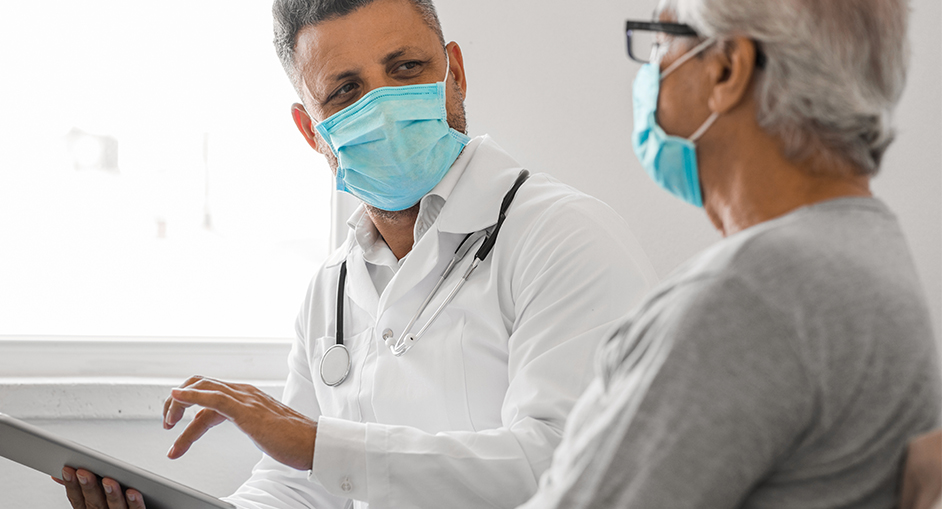Time to See the Doctor Why Mens Health Screenings Matter
August 28, 2022

It’s not just a stereotype. Many men are reluctant to see a doctor.
In fact, AARP has reported on a study that found only 50 percent of men surveyed get regular checkups — and 72 percent said they’d rather clean the bathroom than go see their doctor!
Why It Matters
Whatever keeps them away, these men are missing out on potentially life-saving health screenings.
Screening tests are important because they can detect disease early when it’s easier to treat and to heal. And many of these tests can be done as part of a routine checkup.
That study cited by AARP also found that older men are better about regular checkups (74 percent) compared to men ages 35 to 54 (43 percent).
To help the men in your life stay healthy, encourage them to get their routine screenings.
Health Screenings for Men
Some screenings, like HIV, may be recommended to have only once in a lifetime. Others, like prostate cancer, should be done regularly. Let’s look at six screenings recommended for regular testing.
- Blood pressure screening – This should be done at least once a year. Early detection and treatment of high blood pressure can lower a man’s risk for heart disease, stroke and kidney disease.
- Cholesterol screening – A baseline test should be done by age 20, with regular screenings beginning at age 35. A simple fasting blood test can determine your levels of LDL (“bad”) and HDL (“good”) cholesterol and triglycerides. High LDL, low HDL and high triglycerides increase the risk of heart disease and stroke.
- Diabetes screening – Uncontrolled diabetes contributes to many other health problems, including life-threatening heart disease. Screening should start around age 45 — even earlier for men at increased risk because of family history, high blood pressure or obesity.
- Skin cancer screening – Men are twice as likely as women to have basal and squamous cell skin cancers. Older men are also twice as likely to develop melanoma. Regular self-exams are recommended and talk to your doctor about any changes in marks and moles.
- Colonoscopy – Screenings should start at age 45. Generally, colon cancer is slow-growing. Regular colonoscopies can detect polyps before they turn into cancer, and the polyps are removed during the procedure.
- Prostate cancer screening – Screenings should start around age 50, or earlier if there is increased risk. A digital rectal exam or, if needed, prostate-specific antigen blood test can help detect cancer.
- Lung cancer screening – For men who are current or former smokers lung cancer screenings should begin at age 50. Lung cancer is the leading cause of cancer death among both men and women. A low-dose CT scan is one way to find the cancer in its earliest stages while it is still treatable.
Ready to make that appointment, guys? Call 954-276-5552 to schedule an annual physical with prostate exam with a Memorial Primary Care physician.

